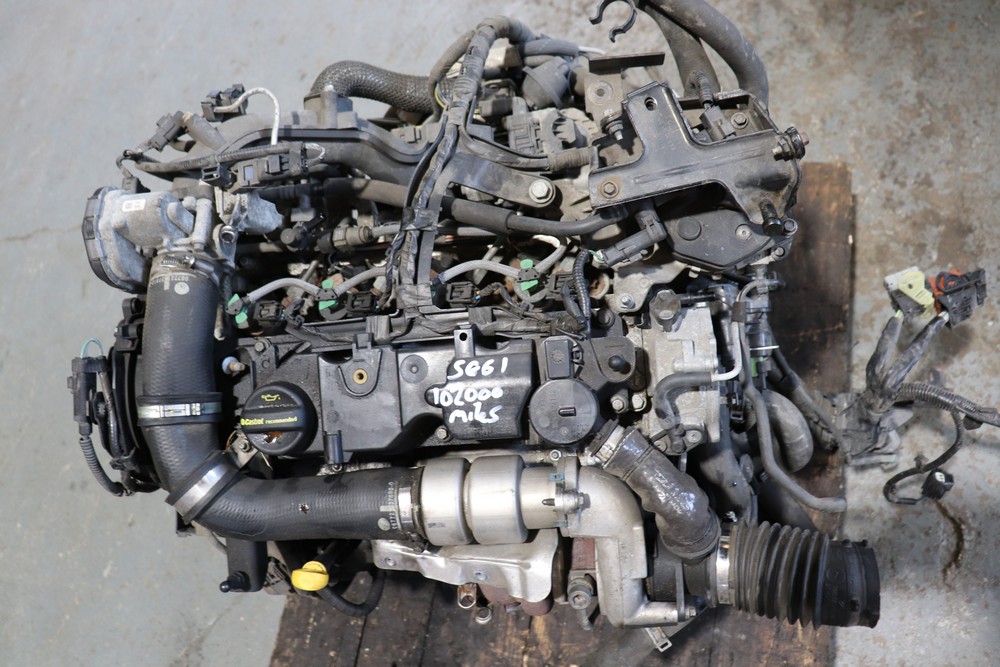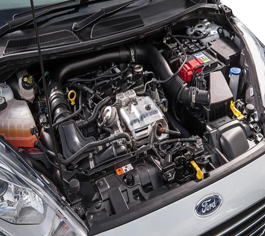How to Maintain Your Ford Fiesta Engine for Long-Term Performance
How to Maintain Your Ford Fiesta Engine for Long-Term Performance
Blog Article
The Future of Engines: Advancements Driving Lasting Power Solutions
As the automobile sector browses the imperative change towards sustainability, the future of engines is increasingly specified by groundbreaking technologies. Electric engine improvements, along with encouraging advancements in hydrogen fuel cells and biofuels, are improving the landscape of power options. The development of hybrid systems better complicates this development, presenting both challenges and opportunities to minimize emissions successfully. Combined with the assimilation of expert system in engine style, these technical strides raise essential questions regarding their lasting practicality and influence on standard paradigms. What might this suggest for the sector and customers alike?
Electric Engine Developments
The advancement of electric engine developments symbolizes a pivotal shift in the vehicle and aerospace markets, driven by the immediate demand for sustainable options to fossil fuels. This change is identified by substantial advancements in battery innovation, power electronics, and electrical motor style, which jointly improve the efficiency and performance of electrical engines.
Recent technologies have actually led to the creation of lighter, a lot more energy-dense batteries, such as lithium-silicon and solid-state batteries, which guarantee longer arrays and much shorter charging times. Furthermore, renovations in electric motor efficiency, such as the use of long-term magnets and progressed cooling down systems, enable electric engines to operate efficiently under varying problems. These improvements not only enhance automobile performance but likewise contribute to a decrease in overall power intake.
Additionally, the assimilation of innovative software application algorithms has actually maximized power monitoring in electrical vehicles, enabling regenerative braking and predictive charging methods. As suppliers significantly accept electric propulsion, the aerospace and auto fields are witnessing a paradigm shift in the direction of greener modern technologies. This evolution not just meets regulatory needs yet also lines up with consumer preferences for eco-friendly transportation remedies, strengthening electric engines as a cornerstone of future lasting flexibility.
Improvements in Biofuels
As the automobile and aerospace markets increasingly prioritize sustainable power resources, developments in biofuels arise as a complementary solution to electric engines. Biofuels, originated from natural products such as crops, waste, and algae, provide an innovative avenue for decreasing greenhouse gas discharges and dependence on nonrenewable fuel sources.
Current research has actually focused on boosting the effectiveness and sustainability of biofuel production. Second-generation biofuels utilize non-food feedstocks, minimizing competitors with food supply and minimizing environmental effect. Innovations in artificial biology have enabled the design of microbes to produce biofuels much more properly, leading to higher returns and reduced production expenses.
In addition, the advancement of drop-in biofuels permits smooth assimilation into existing facilities, making it possible for a smoother shift for industries generally based on nonrenewable fuel sources. ford fiesta engine. These gas can be used in current engines without alterations, promoting their adoption throughout numerous industries
Investments in biofuel innovation, in addition to helpful plans, are essential to drive innovation and scalability. As the worldwide area looks for to battle climate change, biofuels use a pragmatic, immediate service that aligns with the overarching goal of sustainability in transport and aviation.
Hydrogen Fuel Cell Modern Technology
An expanding number of researchers and companies are exploring hydrogen gas cell technology as a sensible option to conventional source of power in transport and power systems. This modern technology converts chemical energy from hydrogen into power via an electrochemical reaction, with water as the only by-product, making it an eco-friendly choice.
The core of hydrogen gas cells is the gas cell pile, where hydrogen molecules are split right into electrons helpful resources and protons. The flow of electrons generates electrical energy, while protons move via a membrane layer to combine with oxygen from the air, developing water. This process causes high effectiveness and reduced exhausts, placing hydrogen gas cells as an important gamer in the transition to sustainable energy.
Significant developments have actually been made in improving the durability and effectiveness of fuel cells, together with lowering expenses through ingenious production strategies. Additionally, the growth of hydrogen production techniques, such as electrolysis powered by renewable resource sources, enhances the sustainability of the overall system. As infrastructure for hydrogen refueling expands and production techniques come to be much more effective, hydrogen gas cell modern technology holds wonderful guarantee for decarbonizing different fields, consisting of heavy-duty transportation and stationary power generation.
Hybrid Systems and Their Impact
Crossbreed systems represent a considerable advancement in lasting engine modern technology, combining conventional interior burning engines with electrical propulsion to enhance power performance and minimize exhausts (ford fiesta engine). This dual strategy allows cars to utilize both source of power, allowing higher versatility in power intake and decreasing dependence on nonrenewable fuel sources

In addition to environmental benefits, hybrid systems offer customers a viable transition in the direction of completely electric vehicles. They relieve array anxiousness by incorporating the comfort of gasoline with the advantages of electrical propulsion, making them an attractive choice for a bigger audience.
The Role of AI in Engine Design
Leveraging innovative formulas and artificial intelligence strategies, the auto industry is increasingly incorporating fabricated knowledge (AI) right into engine design processes. AI boosts the effectiveness and performance of style by examining huge datasets to recognize optimal arrangements and efficiency specifications. This capability allows designers to mimic different operating conditions and forecast engine behavior under multiple circumstances, significantly minimizing the moment and cost linked with conventional prototyping methods.
Additionally, AI facilitates the growth of advanced products and burning processes tailored for sustainability. By enhancing fuel effectiveness and minimizing discharges, AI-driven styles line up with international initiatives focused on decreasing the carbon impact of automotive engines. Device learning algorithms can additionally anticipate upkeep demands, resulting in enhanced integrity and long life of engine components.
Moreover, AI contributes in the assimilation of electrification innovations, such as hybrid systems, where it can enhance battery monitoring and power recuperation processes. As the market relocates towards even more lasting power options, the visit this website duty of AI in engine design becomes increasingly essential, driving advancement and enhancing the efficiency of future engines. Eventually, the cooperation between AI and engine style proclaims a new age of smarter, cleaner, and much more efficient automotive technologies.

Conclusion
To conclude, the future of engines is being formed by a merging of cutting-edge innovations that focus on sustainability. Electric engine improvements, biofuel growths, hydrogen gas cells, and crossbreed systems collectively add to a substantial decrease in emissions and environmental impact. In addition, the combination of expert system in engine style enhances effectiveness and efficiency. These transformative remedies emphasize a dedication to developing a cleaner, extra sustainable automotive landscape, inevitably profiting both culture and the setting.
Electric engine developments, alongside promising developments in hydrogen gas cells and biofuels, are improving the landscape of power solutions. Additionally, renovations in electrical motor performance, such as the use of irreversible magnets and advanced cooling systems, allow electrical engines to run effectively under differing conditions. By maximizing gas effectiveness and reducing emissions, AI-driven designs straighten with international initiatives intended at reducing the carbon impact of vehicle engines. As the market relocates in the direction of even more sustainable power services, the duty of AI in engine style comes to be progressively vital, driving development and improving the efficiency of future engines. Electric engine innovations, biofuel advancements, hydrogen fuel cells, and hybrid systems collectively contribute to a substantial decrease in discharges and ecological effect.
Report this page